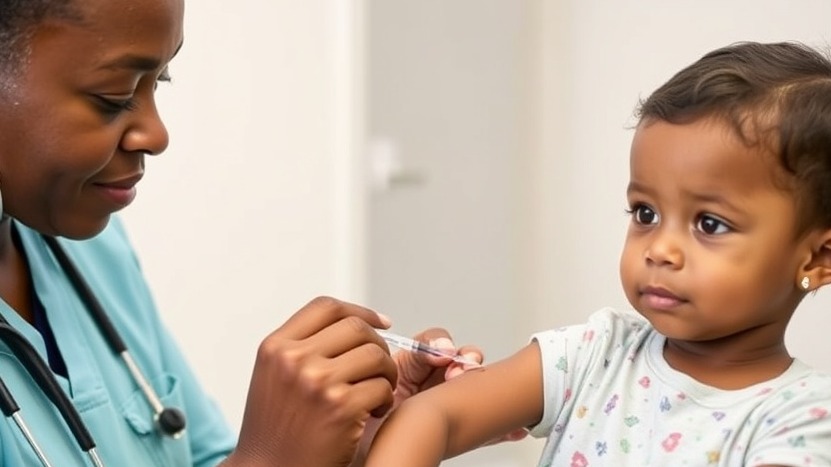
Why Monitoring Vaccine Safety Is Crucial for Public Health
Vaccines remain one of the most successful public health interventions, preventing millions of hospitalizations and deaths each year. However, their effectiveness can only be assured through diligent monitoring of their safety. The complexities surrounding vaccine safety are especially relevant today, as maintaining public trust is pivotal. Experts emphasize the necessity of ensuring vaccines remain overwhelmingly safe, which involves continual enhancements to monitoring systems.
The Federal Systems Monitoring Vaccine Safety
The federal government employs a multifaceted approach to monitor vaccine safety through several established systems. These include:
Safety Data from Clinical Trials: Before vaccines are licensed for public use, they undergo rigorous clinical trials monitored by the FDA, ensuring that safety data is carefully reviewed.
Post-licensure Rapid Immunization Safety Monitoring (PRISM) and Biologics Effectiveness and Safety (BEST): These programs allow ongoing evaluation of vaccine performance in the real world, capturing valuable data on adverse events.
Vaccine Adverse Events Reporting System (VAERS): A collaborative effort between the FDA and CDC which collects reports of adverse events post-vaccination from healthcare providers and the public.
Vaccine Injury Compensation Data: Managed by the Health Resources and Services Administration (HRSA), this system compensates claims of injury from vaccines, further highlighting the commitment to monitor safety.
Controversies and Calls for Reform
Despite the robust systems in place, recent controversies have emerged, particularly following comments from figures such as HHS Secretary Robert F. Kennedy, Jr. asserting that federal oversight may not be comprehensive enough. Kennedy's advocacy for an overhaul of vaccine monitoring, including improved transparency and the establishment of a dedicated division at the CDC, suggests a perceived need for reform in response to public concerns. His statements have sparked discussions among policymakers and the medical community about the adequacy of current vaccine safety protocols.
Diverse Perspectives Within the Medical Community
While some advocate for increased scrutiny of vaccine safety, which includes proposing comprehensive studies, many experts within the healthcare infrastructure argue that the existing systems effectively track significant safety signals. These experts point out the decades of experience that these monitoring systems have in identifying safety issues that arose historically, and they highlight the idea that data from various channels can effectively inform public health decisions. This debate reveals the complexity of balancing rigorous vaccine safety monitoring while maintaining public confidence.
The Role of Public Trust in Vaccine Uptake
The growing scrutiny around vaccine safety is interlinked with public trust—a vital element needed to encourage vaccination uptake. Experts assert that maintaining open communication about safety monitoring, outcomes, and responding to public inquiries is essential for fostering confidence in vaccines, particularly as misinformation continues to proliferate.
Future Directions for Vaccine Safety Monitoring
Looking to the future, stakeholders are urged to enhance current monitoring systems by incorporating automated data collection methods, utilizing digital health solutions, and ensuring that these innovations are transparent to the public. Such advancements could potentially boost the credibility of the federal vaccine safety monitoring systems and help counter skepticism that can arise in turbulent public discourse around vaccination.
Conclusion: The Importance of Continued Vigilance and Reform
Monitoring vaccine safety remains an essential component of public health policy. As discussions around the efficacy and transparency of safety systems evolve, it is crucial for both federal entities and the wider medical community to adapt and respond effectively to emerging challenges. Engaging the public, increasing transparency, and employing innovative methodologies are pathways toward reinforcing confidence in the vaccines that continue to safeguard public health.
 Add Row
Add Row  Add
Add 




Write A Comment